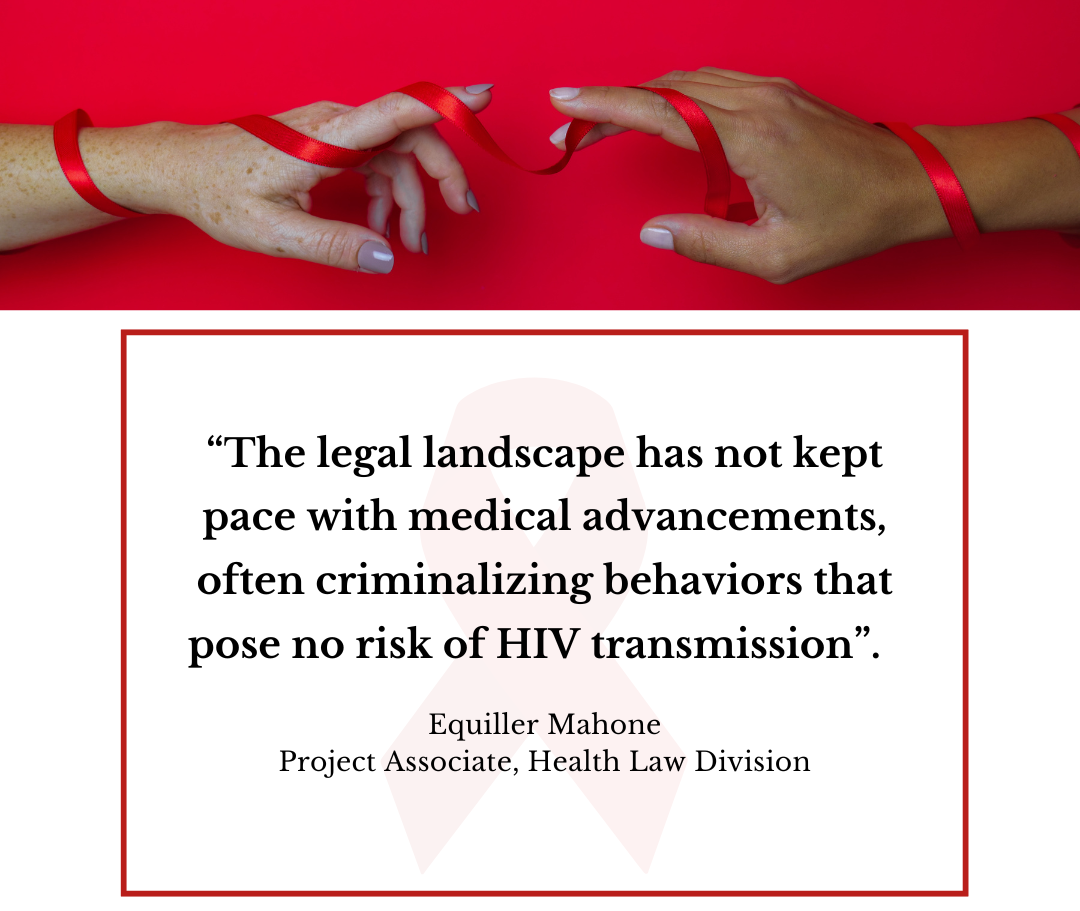06 Jan Introducing Mississippi Center for Justice’s HIV Ambassador Program

Welcome to the Mississippi Center for Justice’s (MCJ) HIV is Not a Crime Ambassador Program blog series! We are thrilled to introduce this groundbreaking initiative aimed at reshaping the conversation around HIV in Mississippi.
The HIV is Not a Crime Ambassador Program is a dynamic effort designed to educate, advocate, and bring about meaningful change in how HIV is perceived in Mississippi. MJC’s ambassadors are dedicated individuals who will lead the charge in dismantling the harmful stigmas and outdated laws that have long impacted people living with HIV. We aim to foster a more informed and compassionate environment for all Mississippians by empowering these community leaders.
The mission of the program is to take actionable steps to modernize Mississippi’s HIV criminalization statute. We strive to promote education, reduce stigma, and advocate for fair and just treatment of people affected by HIV. The goals of the program are multifaceted:
- Education and Awareness: Equip ambassadors with the tools to educate their communities about HIV, addressing myths and misconceptions that contribute to stigma.
- Advocacy: Support ambassadors in advocating for policy changes that modernize HIV-related laws, ensuring they reflect current scientific understanding and promote public health.
- Community Engagement: Encourage ambassadors to engage with their local communities, creating a network of support and solidarity for people living with HIV.
- Reduction of Stigma: Promote a shift in societal attitudes towards HIV, fostering acceptance and reducing discrimination through open dialogue and personal stories.
Why was this initiative launched?
Mississippi has long faced significant challenges regarding HIV, including high rates of diagnosis and pervasive stigma. This initiative was launched to address these issues head-on, ensuring that people living with HIV are treated with dignity and respect, and are protected under laws that are just and informed by science. Decriminalization will play a crucial role in reducing stigma, fostering a supportive environment for those affected by HIV. The legal landscape has not kept pace with medical advancements, often criminalizing behaviors that pose no risk of HIV transmission. Furthermore, HIV stigma and discrimination affect the emotional well-being and mental health of people living with HIV.
What is the program’s significance for Mississippi?
This program is particularly significant for Mississippi due to its unique social and advocacy context. We can work towards a more effective health system and equitable society by focusing on decriminalization and stigma reduction. The program is designed to bring about lasting change by empowering those directly affected and mobilizing allies to join the fight for justice and equality. We anticipate that the Ambassador Program will have a profound impact on local communities across Mississippi.
Written by:
Equiller Mahone, MCJ
Project Associate
Health Law Campaign


